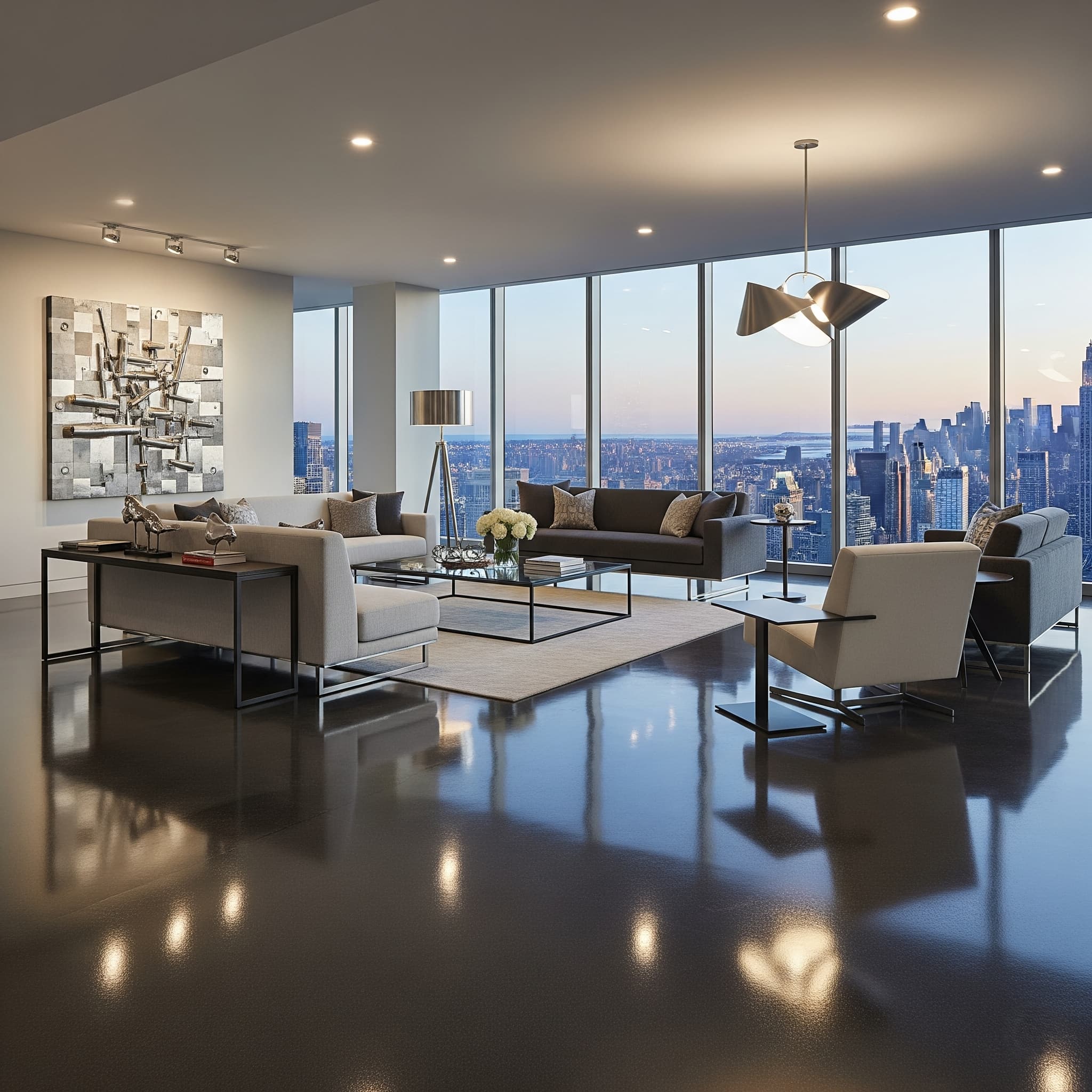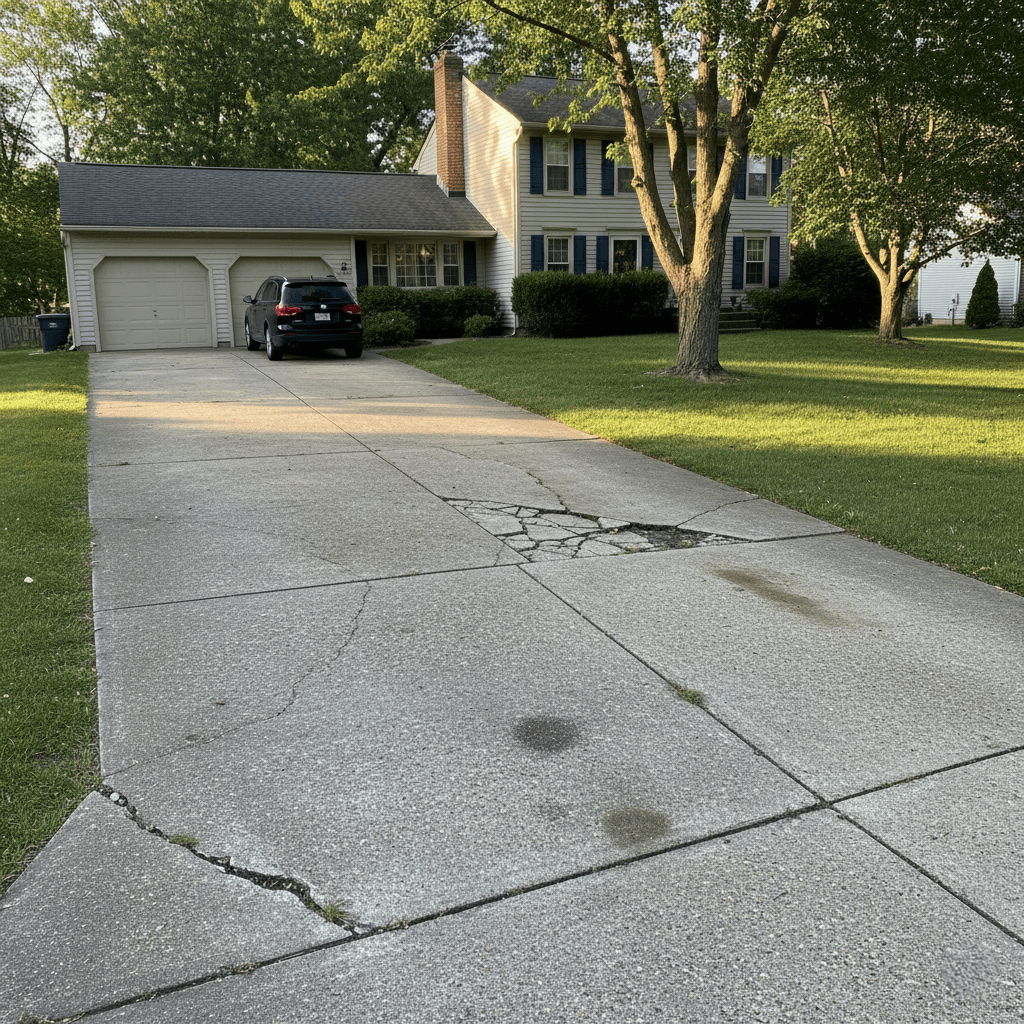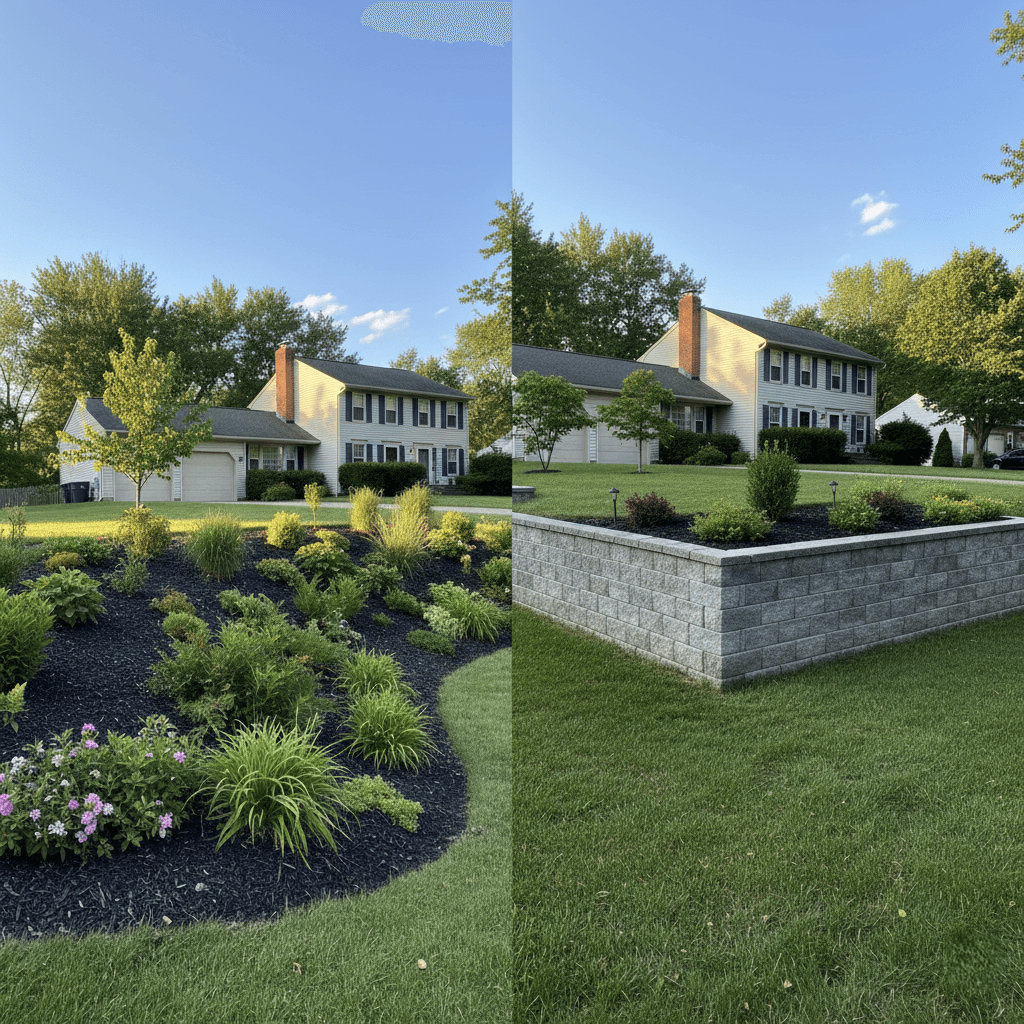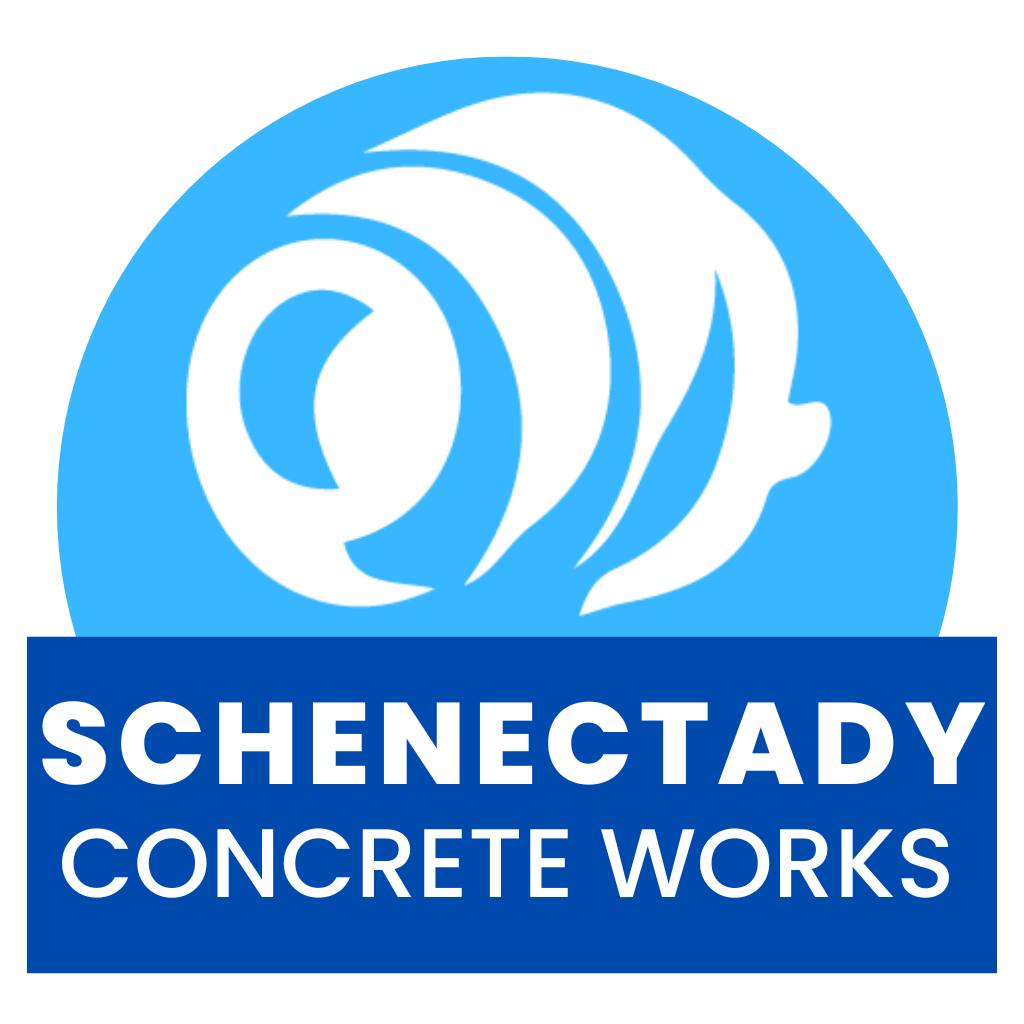Schenectady Concrete Works - Frequently Asked Questions
If Your Question Is Not Answered Here Drop Us A Line
What does professional concrete driveway installation cost per square foot in Schenectady?
Schenectady concrete driveway installation ranges $9-$15 per square foot due to New York’s stringent building requirements and harsh climate conditions. Standard 5-inch reinforced driveways cost $9-12 per square foot, while premium 6-inch installations with decorative elements reach $13-15 per square foot. New York’s freeze-thaw requirements mandate air-entrained concrete, increasing material costs. Local labor rates and seasonal demand in the Northeast corridor influence pricing significantly.
How do full replacement costs compare to driveway resurfacing in Schenectady?
Complete driveway replacement in Schenectady costs $11-18 per square foot versus $5-10 per square foot for concrete resurfacing. Replacement involves demolition, excavation below New York’s deep frost line (42 inches), proper drainage installation, and new concrete meeting state standards. Resurfacing applies a bonded overlay over sound existing concrete. New York’s severe freeze-thaw cycles often make replacement more cost-effective long-term, despite higher initial investment compared to resurfacing.
What's the price differential between decorative stamped and plain concrete patios in Schenectady?
Standard broom-finish patios in Schenectady cost $10-14 per square foot, while stamped concrete patios ranges $16-24 per square foot. The premium reflects specialized labor, color systems, pattern tools, and enhanced sealing requirements for New York’s climate. Popular Schenectady patterns include slate, brick, and fieldstone textures reflecting local architectural heritage. Both finishes require air-entrained concrete and proper drainage for New York’s heavy precipitation and freeze-thaw conditions.
What influences concrete yard pricing in Schenectady, including delivery charges and additives?
Schenectady ready-mix concrete costs $115-155 per cubic yard, with short-load fees ($30-40 per yard under 8 yards), pump truck charges ($350-550 per job), and delivery beyond 25 miles ($6-8 per mile). New York-required air entrainment adds $5-12 per yard, winter accelerators $12-20 per yard, and anti-washout admixtures $8-15 per yard. Regional competition moderates base prices, but specialized additives for New York’s climate add substantial costs.
What thickness specification works optimally for Schenectady driveways?
Six-inch thickness provides the best performance for Schenectady driveways facing New York’s severe freeze-thaw cycles and heavy snow loads. Five-inch meets minimum requirements but may develop stress cracks during harsh winters. Four-inch thickness proves inadequate for New York conditions except for light-duty applications. Thickened edges to 8-10 inches are essential where vehicles park or turn. The additional inch provides a crucial durability margin for New York’s challenging climate conditions.
What slope requirements ensure adequate drainage for Schenectady concrete?
Schenectady driveways require a minimum 1/4 inch per foot slope (2%) with 1/2 inch per foot (4%) preferred for New York’s heavy precipitation, including snow melt. Patios need a minimum of 1/4 inch per foot away from structures to handle New York’s rainfall patterns. A maximum 8% slope prevents finishing problems and surface scaling. Proper drainage is critical in Schenectady due to clay soils, high precipitation, and potential for ice dam formation.
When are concrete overlays suitable over existing surfaces in Schenectady?
Overlays work in Schenectady when existing concrete shows minimal freeze-thaw damage and remains structurally sound. Surface preparation must include thorough cleaning, acid etching, and bonding agents rated for New York’s climate extremes. Minimum 3-inch overlay thickness recommended for New York conditions, with 4 inches providing better durability. Overlays aren’t recommended for extensively damaged concrete. Complete replacement often proves more economical, given New York’s harsh climate impacts on marginal existing concrete.
What temperature limits restrict concrete placement in Schenectady?
Schenectady concrete pours should avoid temperatures below 40°F or above 85°F. New York’s climate requires extensive cold-weather protection from October through April, including heated aggregates, warm mixing water, and insulated curing systems. Hot-weather precautions apply during summer with retarders and strategic scheduling. Concrete temperature at placement should be maintained at 55-75°F for proper hydration. New York’s variable conditions require ready adaptation of temperature control measures.
What's the concrete curing timeline for traffic loading in Schenectady?
Schenectady concrete supports pedestrian traffic after 36-48 hours and vehicles after 10-14 days under normal conditions. New York’s cold, humid winters significantly extend curing requirements – winter pours may need 21-35 days before vehicle loading. Summer humidity can accelerate early curing, but requires extended moist curing for strength development. Monitor weather conditions closely and extend curing periods during New York’s challenging winter months.
When should new concrete be sealed in Schenectady, and what sealer type is optimal?
Seal new Schenectady concrete 30-75 days after placement, allowing proper curing and surface preparation in New York’s humid climate. Penetrating silane/siloxane sealers provide superior performance against New York’s freeze-thaw and de-icing salt exposure. Avoid topical acrylics on exterior surfaces exposed to northeastern winters. Apply during mild, dry weather (50-75°F) with low humidity. Reapply penetrating sealers every 2-3 years due to severe New York exposure conditions.
What represents normal versus concerning cracks in Schenectady concrete?
Hairline cracks under 1/16 inch are normal in Schenectady due to New York’s extreme temperature variations. Cracks exceeding 1/8 inch, showing displacement, or admitting water penetration require immediate professional evaluation. Structural concerns often result from freeze-thaw damage, inadequate reinforcement, or poor drainage. New York’s de-icing salt exposure can accelerate crack deterioration. Document crack patterns and consult engineers for issues suggesting foundation settlement or major structural problems.
Are permits and HOA approvals necessary for Schenectady concrete projects?
Schenectady requires building permits for most concrete work, including driveways, substantial patios, and all structural concrete. Contact the Schenectady Building Department at (518) 382-5147 for specific permit requirements. Fees typically range $100 to $400, depending on project complexity. Historic district properties may need additional approvals. Many neighborhoods have HOA restrictions on concrete appearance and placement. Verify HOA compliance requirements before starting work to avoid expensive correction requirements.
What New York and Schenectady codes apply to concrete construction requirements?
Schenectady enforces the New York State Building Code with local amendments for concrete construction. Driveways require a minimum 5-inch thickness with proper reinforcement, air-entrained concrete, and adequate drainage slope. Footings must extend below New York’s 42-inch frost line. All exterior concrete needs freeze-thaw protection meeting ACI 318 standards as adopted by New York. Commercial projects require professional engineering. Contact the Schenectady Building Department for local code interpretations.
What inspection protocols apply to Schenectady concrete projects?
Schenectady mandates inspections for permitted concrete work, including excavation/footing inspection, reinforcement, and form inspection before placement, and completion inspection. Schedule a minimum of 24 hours in advance through the Schenectady Building Department. Inspectors verify New York code compliance, including thickness, air entrainment, reinforcement placement, and proper slope. Work cannot advance without inspection approval. Failed inspections require corrections and re-inspection with additional fees.
What should I ask concrete contractors in Schenectady about licensing and guarantees?
Verify Schenectady concrete contractors maintain New York state licenses, general liability insurance ($2 million minimum), and workers’ compensation coverage. Request 5-8 recent local references with complete contact information and project photos. Warranties should cover workmanship defects for 2-4 years and structural issues for 3-7 years. Obtain comprehensive written estimates specifying New York-compliant air-entrained mixes, reinforcement details, thickness, and finishing. Confirm understanding of the New York Building Code and Schenectady permit requirements.



